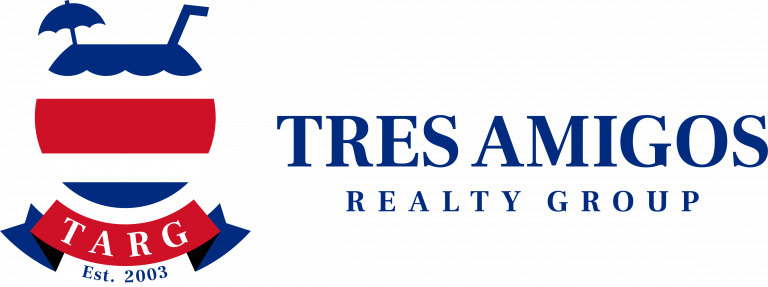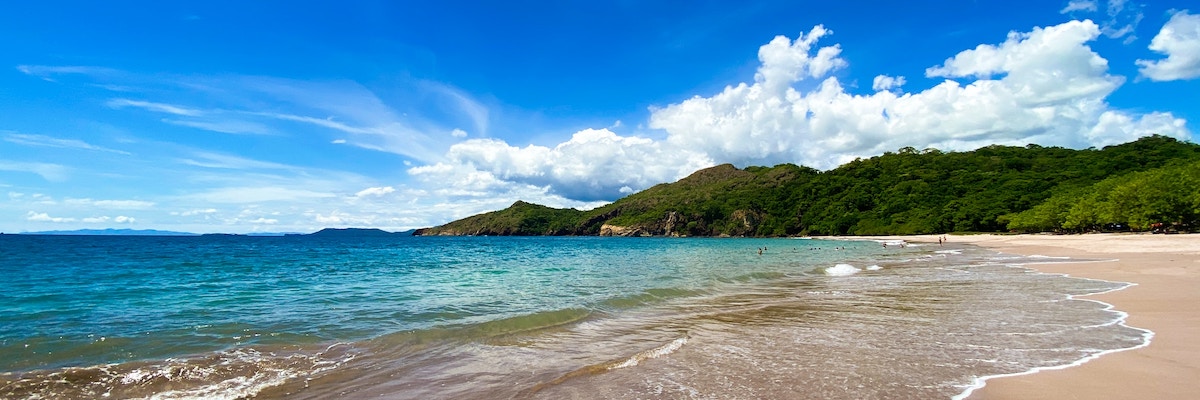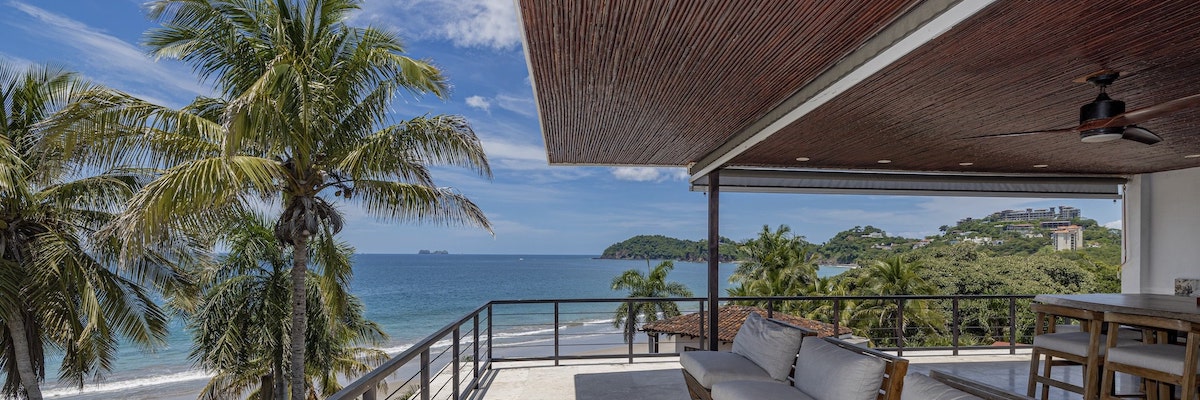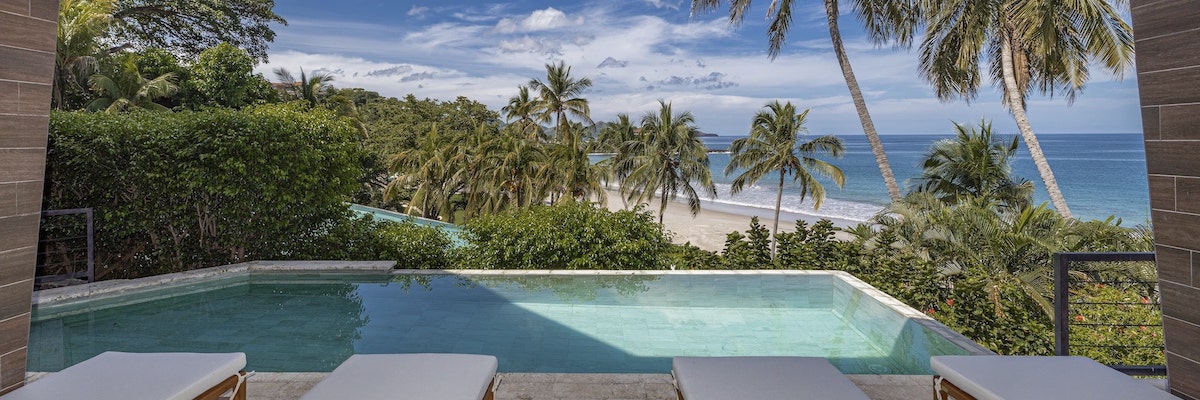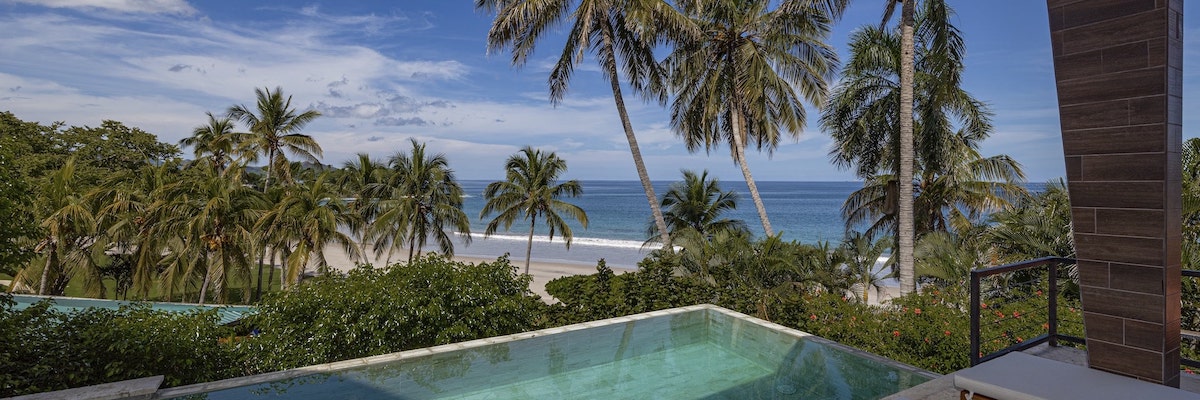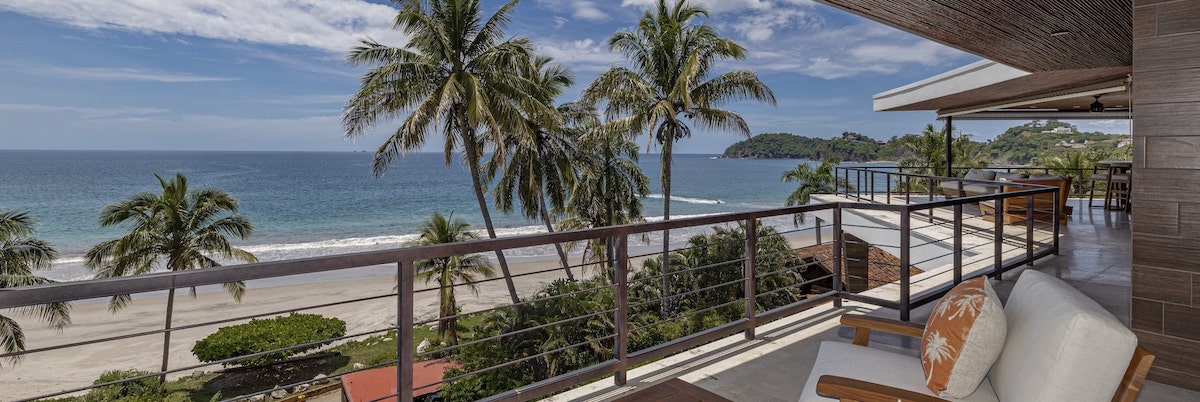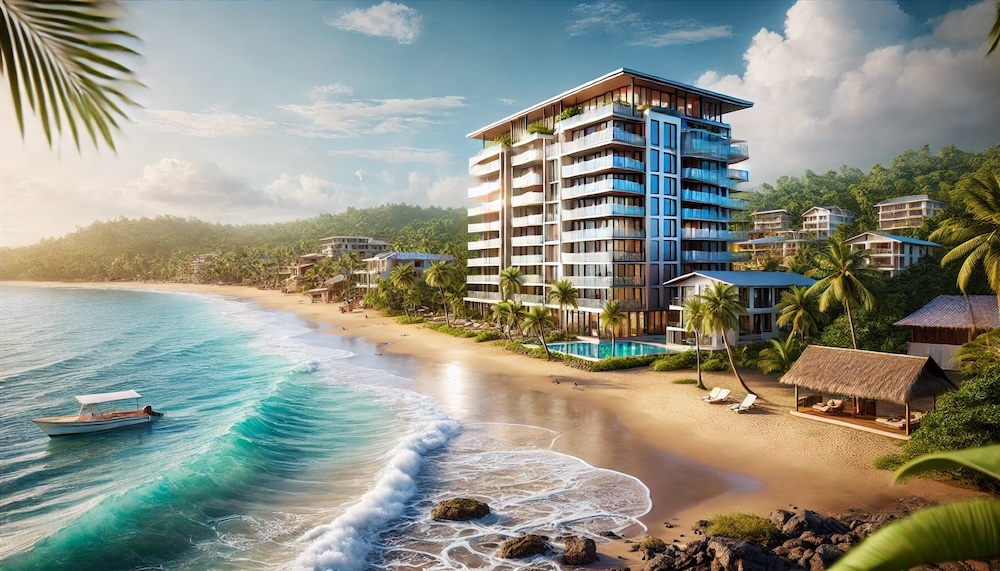
The North Pacific Coast of Costa Rica, especially the Papagayo region in Guanacaste, is among the most sought-after real estate destinations in the country. Celebrated for its beautiful beaches, dry tropical climate, upscale resorts, and active expat communities, the area has become a magnet for foreign investors, retirees, and those seeking vacation homes. The region is well-known for its tourist appeal, robust rental market, and superior infrastructure, making it an excellent location for real estate investment.
In this comprehensive guide, we'll delve into all the essential information about real estate on Costa Rica's North Pacific Coast.
1. Why Invest in Real Estate?
Growing Tourism Industry
Guanacaste stands as one of Costa Rica's top tourist destinations, attracting visitors with its picturesque beaches and national parks. Tourism fuels the local economy, directly supporting the real estate market, particularly in short-term vacation rentals and premium properties. Communities such as Playa Hermosa, Playa Ocotal, and Playas del Coco are highly desirable for both short-term rentals and second homes.
Favorable Climate
The North Pacific Coast is renowned for its dry tropical climate, featuring two distinct seasons that influence weather patterns:
- Dry Season (December to April): This period experiences minimal rainfall, with consistently warm and sunny weather. Expect clear skies and a dry landscape, with daytime temperatures typically ranging from 80°F to 95°F (27°C to 35°C), ideal for outdoor activities and exploration.
- Wet Season (May to November): The wet season brings higher humidity and increased rainfall, transforming the region into a lush, green landscape. Occasional heavy rain showers are common, especially in September and October. Despite the rainfall, daytime temperatures remain warm, ranging from 75°F to 90°F (24°C to 32°C). This climate is perfect for those seeking warm weather, beach activities, and a relaxed lifestyle.
Accessibility
Guanacaste International Airport in Liberia serves as the main gateway to the North Pacific Coast, ensuring easy access for international travelers. This convenience has significantly boosted tourism and, consequently, the real estate market, particularly for investors targeting the vacation rental sector. The region is just a 30-minute drive from the airport.
Stable Property Market
Guanacaste’s real estate market is marked by steady growth. The area's enduring appeal to foreign buyers and expatriates ensures consistent demand for properties. Additionally, Costa Rica’s stable political environment and favorable property laws for foreigners enhance its attractiveness as an investment destination.
Strong Rental Market
With a steady influx of tourists and a growing expatriate community, the rental market on the North Pacific Coast remains strong. Short-term vacation rentals, especially in beach towns like Playas del Coco, Playa Hermosa, and Playa Ocotal, generate significant income for property owners, while long-term rentals cater to expatriates and retirees looking to settle in the area.
Top Real Estate Hotspots on the North Pacific Coast
Playas del Coco
Playas del Coco, one of Guanacaste's oldest beach communities, is renowned for its lively nightlife, water sports, and expatriate community. The real estate here is varied, offering options from affordable condos to high-end beachfront villas. Its proximity to the international airport makes Playas del Coco highly accessible, making it an excellent choice for rental income properties.
Papagayo Peninsula
The Papagayo Peninsula is one of Costa Rica's most exclusive and premium real estate markets. It hosts some of the country’s most prestigious resorts, including the Four Seasons and the Ritz Carlton. This area is perfect for ultra-high-net-worth individuals seeking exclusive estates and luxury vacation homes. The peninsula is also a favored destination for yacht and golf enthusiasts, enhancing its appeal as a high-end real estate market.
Types of Properties Available
Luxury Homes and Villas
The North Pacific Coast is known for its upscale villa market, featuring high-end properties with spectacular ocean views, infinity pools, and modern architectural designs. Many of these villas are located in gated communities and offer comprehensive property management services, making them ideal for absentee owners. Luxury homes and villas typically range from $900,000 to $6,000,000, depending on size and level of luxury.
Beachfront Homes
Beachfront properties are among the most coveted in the region, with prices reflecting their prime locations. Whether it’s a contemporary villa on Playa Hermosa or a traditional Costa Rican-style home in Playas del Coco, beachfront homes are a solid investment, especially for vacation rentals.
Legal Considerations
- Ownership: Beachfront properties are owned by the Costa Rican government (beachfront defined as 200 meters from the average tide).
- Residency Requirements: Must be Costa Rican or hold Costa Rican residency (minimum of 5 years).
- Foreign Ownership: Foreigners must be associated with a Costa Rican or Costa Rican resident (maximum 49.9% ownership).
- Concession Duration: Typically granted for 20 years and renewable.
- Property Tax: Ranges between 2%-5% of the property’s value on concession land versus 0.25% on "Full Title" properties.
- Selling Complexity: Selling concession land is often more complicated than "Full Title" properties.
- Construction Restrictions: Numerous restrictions apply to building on concession land.
Single-Family Homes
Located within secure, upscale beach communities between Playa Panama and Playa Ocotal, these neighborhoods offer privacy, security, and additional amenities like community pools, gyms, and clubhouses. Homes typically feature contemporary or tropical designs with open-plan living spaces, high ceilings, and an emphasis on indoor-outdoor living. Most include private pools, manicured gardens, modern kitchens, and spacious outdoor patios. Homes range from 2 to 4 bedrooms, with living spaces between 2,000 to 3,500 sq ft. Single-family homes generally cost between $300,000 and $800,000, depending on size and luxury level.
Traditional Tico Homes
These homes are found in more local or rural areas surrounding Playas del Coco. Typically modest in size and style, they feature traditional Costa Rican (Tico) designs, including smaller rooms, basic amenities, and simple finishes. Often single-story, these homes prioritize practicality over luxury and may include small gardens or patios with simple outdoor living areas. Usually offering 2 to 3 bedrooms and around 1,000 to 1,500 sq ft of living space, they are more affordable, ranging from $100,000 to $250,000 depending on location and proximity to Playas del Coco.
Condos and Townhouses
Condominiums are a popular choice for both investors and retirees seeking lower maintenance costs and a convenient lifestyle. Many condos are situated within secure gated communities and offer shared amenities like pools, gyms, and concierge services. They are especially common in towns like Playa Hermosa and Playas del Coco. Condos and townhouses typically range from $250,000 to $600,000, depending on size and luxury level.
Land
For those aiming to build their dream home or invest in future development, purchasing land is a viable option. Guanacaste offers a variety of land parcels, from beachfront lots to larger tracts in the hills with panoramic ocean views. Land prices vary based on proximity to the beach, accessibility, and development potential.
Eco-Friendly Developments
Sustainability is an increasing trend in Costa Rican real estate, with eco-friendly homes or developments gaining popularity. These properties are constructed with sustainable materials, designed to minimize environmental impact, and often include features like solar panels and rainwater collection systems.
New Construction and Pre-Construction Homes
Various new developments are emerging around Playas del Coco, offering modern homes with the latest amenities and technologies. Contemporary and modern architectural styles prevail, featuring clean lines, open spaces, and high-end finishes. New builds often incorporate energy-efficient designs, smart home features, and modern outdoor living spaces with pools and landscaped yards. Homes typically range from 2 to 4 bedrooms, with sizes varying from 1,500 to 3,500 sq ft. Pre-construction homes may offer slightly lower prices, starting around $450,000 and reaching up to $2 million or more depending on customization and location.
Legal Considerations for Buying Property on the North Pacific Coast
Foreign Ownership Rights
Costa Rican property laws are favorable to foreign investors. Foreigners enjoy the same property rights as locals and can own land outright in their name or through a corporation. The exception is maritime zones (the first 200 meters from the medium tide line), where special regulations apply.
Title and Due Diligence
Conducting thorough due diligence is essential when purchasing property in Costa Rica. Most properties have clear titles, but verifying this through a reputable real estate attorney is crucial. They will check for any liens, restrictions, or legal issues that could impact your purchase. The National Registry (Registro Nacional) maintains all property titles, and a title search can ensure everything is in order.
Maritime Zone Properties
As previously mentioned, the first 200 meters from the medium tide line is designated as the maritime zone, governed by special laws. The first 50 meters are considered public land and cannot be owned by individuals. The remaining 150 meters are concession land, and leases must be obtained through the local municipality. Concessions can be granted for 10 to 25 years and are subject to renewal.
Steps to Buy and Sell Property
Choose a Real Estate Agent
- Select a real estate agent who specializes in your chosen region.
- Ensure the agent is affiliated with a recognized agency.
- Verify the agent's experience and knowledge of the local market.
- Choose an agent who will present properties that meet your criteria and budget.
- Select an agent who will guide you throughout the transaction process (and even afterward).
Make a Formal Offer (No Need to Be in Costa Rica)
- The buyer presents a price offer to the seller.
- An initial good faith deposit must be transferred to escrow about 10 days after the offer is accepted (approximately 10% of the sale price).
- The offer includes "Terms and Conditions."
- The Property Due Diligence Period (DDP) typically lasts between 21 and 30 days.
- The offer should specify the "Closing Day" date (usually shortly after the due diligence period).
Under-Contract (Agreement Accepted by Both Parties)
- Once the offer is signed by both parties, the buyer's agent sends the contract to the buyer's lawyer/notary and the seller's lawyer.
- The contract is also sent to the seller's agent and the agent of a trust company where deposits will be held until the transaction day (Closing Day).
The Role of the Trust Agency
- The escrow agent will open the "Trust" account on behalf of the buyer and seller.
- Ensure that the sources of the funds are legal (preventing money laundering).
- Hold the funds until the transaction day.
- Present the Closing Statement to the buyer and seller.
- Disburse funds to sellers and other parties.
The Role of the Buyer's Attorney/Notary
- Verify the property title.
- Check the HOA's and the status of the residential project.
- Obtain construction permits or water letters in case of a lot.
- Ensure all seller's utilities are updated on the day of the sale.
- Confirm that municipal and corporate taxes are up to date.
- Form the buyer's corporation (if necessary).
- Assist the buyer in providing legal power of attorney if not present in Costa Rica on the closing day.
- Transfer fees and other expenses from the buyer to the trust.
- Prepare the sales deed and register the property on behalf of the buyer in the National Property Registry.
- Transfer utilities to the buyer's name.
- Provide bookkeeping services (in case of a corporation).
The Role of the Seller's Lawyer
- Provide all necessary information to the buyer's attorney.
- Transfer fees and other expenses from the seller to the trust.
- Assist the seller in obtaining legal authority if not present in Costa Rica on the closing day.
The Role of the Buyer's Realtor
- Present ownership options based on the buyer's criteria.
- Negotiate the purchase price with a formal offer signed by the buyer.
- Send the contract to the lawyers and the trust.
- Hire and oversee a home inspector.
- Hire and oversee a surveyor (in case of land).
- Create addendums to the initial contract (if necessary).
- Follow up with lawyers and the trust.
- Recommend professional services such as property administrators, contractors, decorators, etc.
- Check inventories before the transaction day.
The Role of the Seller's Realtor
- Negotiate the offer price in favor of the seller.
- Prepare inventories.
- Collaborate with the seller's lawyer on documents to be presented to the buyer.
Buyer's Transaction Costs
-
Notary and Transfer Fees: Approximately 4% of the property's value in the registry (only one property registry entity in Costa Rica).
- Real Estate Transfer Tax: 1.5%
- Government Stamp: 1.25%
- Notary Fee: 1.25% plus VAT
- Example: For a $100,000 property, the transfer fee is approximately $4,200.
- Property Studies: $500-$1,000 or more, depending on the property type.
- Company Formation (If Necessary): About $1,000.
- Trust Account Fee: 0.30% of the purchase price (minimum around $600).
- Topographer: From $300 for basic surveys to $500 for a comprehensive field report.
- Power of Attorney: Approximately $450.
- Home Inspection: From $275 for a small condo to $1,000 for a house valued around $1M.
- Other Notarial Costs: Varies based on property type and purchase structure; estimate around $600 per year.
Seller's Transaction Costs
- Real Estate Commission: 6.78% of the sale price.
- Power of Attorney: Approximately $450.
- Notary Fees: Typically between $500-$1,000 or more, depending on the services provided.
Challenges and Considerations
Infrastructure
While much of the North Pacific Coast is well-developed, some areas still encounter infrastructure challenges, particularly in remote or rural locations. Road conditions can vary, and certain amenities like reliable internet may not be available in more secluded areas.
Property Management
If you plan to invest in rental properties or vacation homes, it is essential to hire a reputable property management company. They will handle everything from guest services to maintenance, ensuring your investment is well-maintained in your absence.
Financing
- Limited Bank Financing: Very few banks in Costa Rica offer financing to foreigners, and obtaining a loan can be complex and challenging.
- Seller Financing: Some sellers provide financing options. Typically, this involves about a 50% down payment for 3-5 years with annual interest rates between 5%-8%.
- Private Loans: These can carry higher annual interest rates, ranging from 12%-18%.
By addressing these factors and understanding the intricacies of the real estate market on Costa Rica's North Pacific Coast, potential buyers from the USA or Canada can make informed and confident investment decisions.
